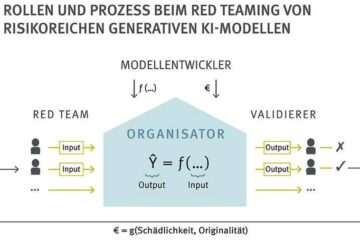UK research, accessible for free, for everyone

UK leads world in publishing revolution to provide open access to scientific research
More than 80,000 biology and medical researchers working at UK universities can now share their research findings freely with fellow researchers, funding bodies, students, journalists, and the general public worldwide. Making the results of science and medical research openly available will aid the global advancement of science and healthcare. Publishing in freely accessible online journals will also make the UK higher education system more cost-effective, by reducing the amount of money spent on journal subscriptions.
The landmark deal announced today by The Joint Information Systems Committee (JISC), a joint committee of HEFCE and other UK further and higher education funding bodies, and open access publisher BioMed Central places the UK at the forefront of the drive to make scientific research freely available on the Internet. The BioMed Central membership agreement commences on the 1 July. From this date article-processing charges will be waived – for all UK higher education staff – when publishing in any of BioMed Central’s 90+ peer-reviewed journals in which all research content is freely accessible.
Dr Alicia Wise, Head of Development at JISC, explains the commitment by JISC to fund open access publishing for the entire UK Higher Education community:
„This ground-breaking deal represents a major shift in the way that research is undertaken and its outputs published and shared. The implications for research and for our educational institutions beyond the health and medical field are immense.“
This is the first step of many that funding bodies are taking to ensure the success of open access. For the academic and clinical research communities working in UK Higher Education institutions, one of the biggest hurdles to publishing in open access journals – cost – has been removed. Funding bodies are now moving to acknowledge that authors who publish in open access journals are providing a service to the scientific community.
The JISC deal means that 180 universities in the UK will now become BioMed Central members. Together with the recent NHS England membership agreement1, the vast majority of research produced in the UK could be published in open access journals at no cost to the individual author.
Publisher Jan Velterop explains why this is so exciting for BioMed Central:
“JISC’s support is of huge significance. The UK is taking the fastest and the largest steps to become a completely open access environment for the sharing of biology and medical research results. Unrestricted access to the majority of UK biomedical research output is now a very real possibility. This represents our largest deal to date, and is a sure sign that the tide has turned to embrace open access.”
BioMed Central now has more members in the UK than in any other country. The UK is a major contributor to the global advance of knowledge. With just 1% of the world’s population, Britain funds 4.5% of all scientific research, and produces 8.5% of the research articles that are published worldwide.2 BioMed Central and JISC look forward to seeing a fast-increasing proportion of these articles published with open access, for the benefit of science and society at large.
Media Contact
Weitere Informationen:
http://www.biomedcentral.com/info/about/pr-releases?pr=20030306Alle Nachrichten aus der Kategorie: Bildung Wissenschaft
Neueste Beiträge

Entscheidender Durchbruch für die Batterieproduktion
Energie speichern und nutzen mit innovativen Schwefelkathoden. HU-Forschungsteam entwickelt Grundlagen für nachhaltige Batterietechnologie. Elektromobilität und portable elektronische Geräte wie Laptop und Handy sind ohne die Verwendung von Lithium-Ionen-Batterien undenkbar. Das…

Wenn Immunzellen den Körper bewegungsunfähig machen
Weltweit erste Therapie der systemischen Sklerose mit einer onkologischen Immuntherapie am LMU Klinikum München. Es ist ein durchaus spektakulärer Fall: Nach einem mehrwöchigen Behandlungszyklus mit einem immuntherapeutischen Krebsmedikament hat ein…

So soll risikoreiche generative KI geprüft werden
Die beschlossene KI-Verordnung der EU sieht vor, dass Künstliche-Intelligenz-Modelle (KI) „für allgemeine Zwecke mit systemischem Risiko“ besonders strikt überprüft werden. In diese Modellkategorie gehören auch populäre generative KI-Modelle wie GPT4…





















